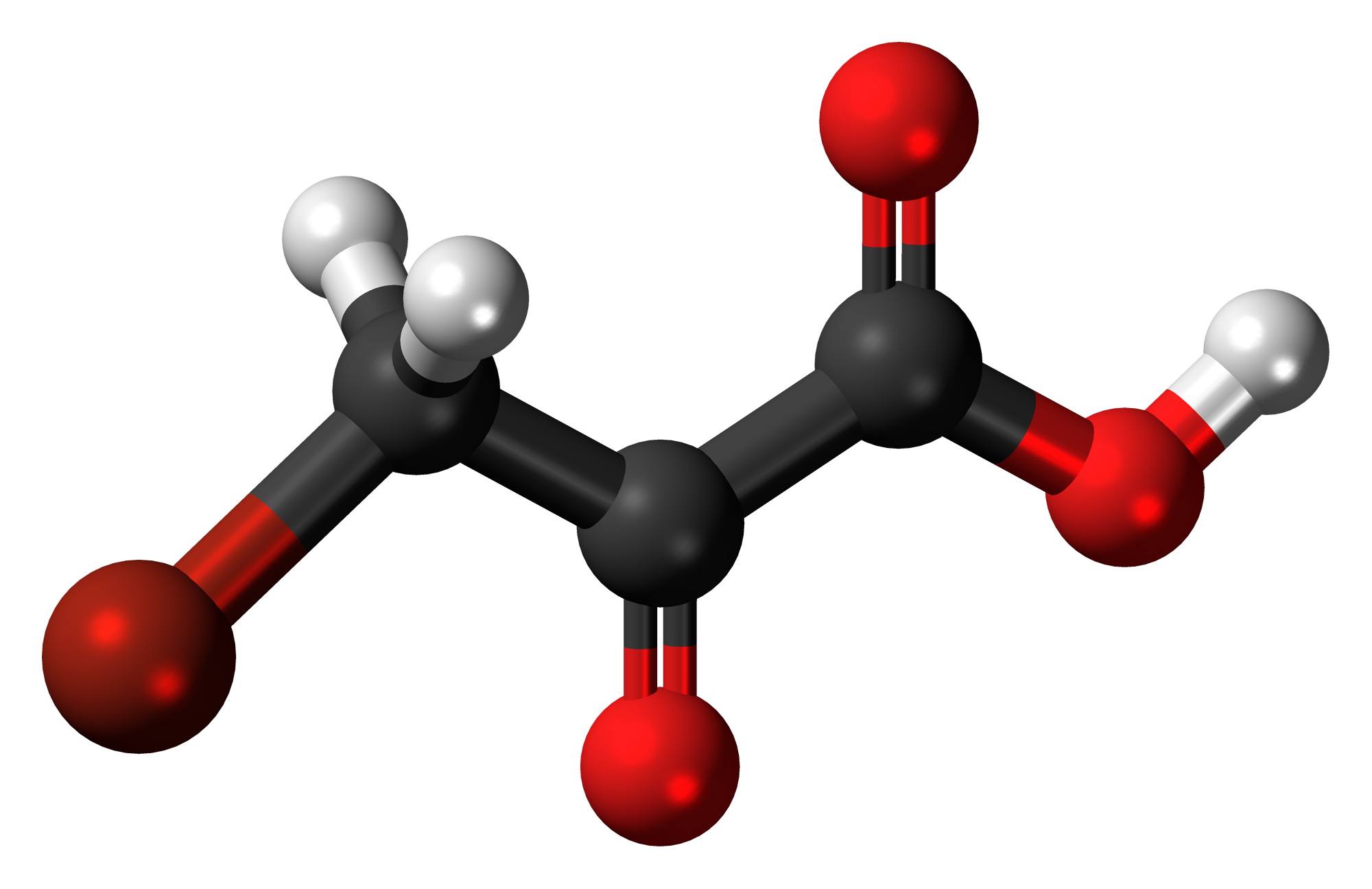
Bromopyruvic acid and its alkaline form, bromopyruvate, are synthetic brominated derivatives of pyruvic acid. They are lactic acid and pyruvate analogs.
The characteristics of bromopyruvate in vitro and in vivo have been reported in the scientific literature since the 1940s. Because it is a highly reactive alkylating agent and it is inherently unstable, it had been described as a metabolic poison.
Research activity
In 1993, researchers at the Johns Hopkins School of Medicine reported that a pyruvate transporter system could be used to deliver bromopyruvate inside trypanosomal cells where its primary target is glyceraldehyde-3-phosphate dehydrogenase, which is highly sensitive to inhibition by bromopyruvate. The pyruvate transporter system, which is known to be overexpressed in cancer cells, was later identified to be a monocarboxylate transporter called monocarboxylate transporter 1. A 2002 study suggested that intra-arterial delivery of bromopyruvic acid directly to the site of tumors in rabbits could represent a strategy for stopping the growth of liver cancer while minimizing toxic side-effects. An application for patent has been submitted.https://en.wikipedia.org/wiki/Bromopyruvic_acid
Geen opmerkingen:
Een reactie posten